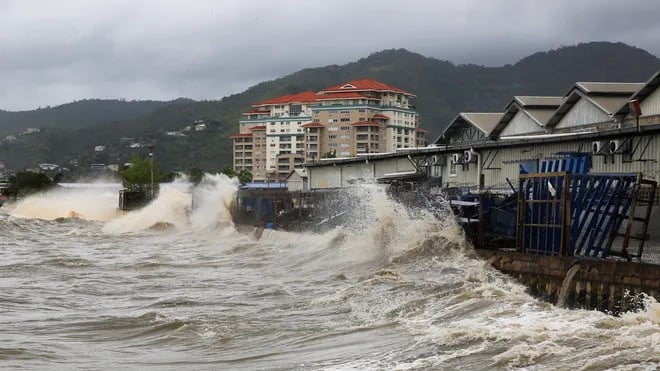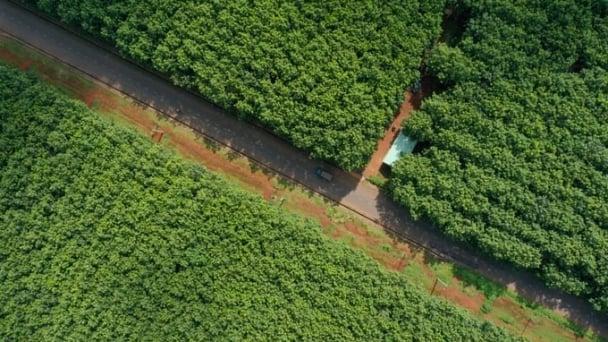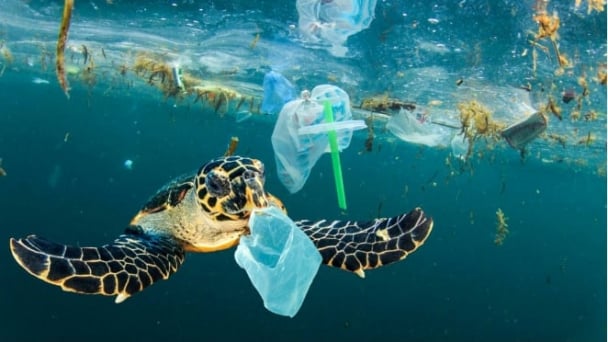May 27, 2025 | 12:06 GMT +7
May 27, 2025 | 12:06 GMT +7
Hotline: 0913.378.918
May 27, 2025 | 12:06 GMT +7
Hotline: 0913.378.918

Hurricane Beryl strengthens to category 5, threatens to devastate the Caribbean. Photo: USA Today.
Hurricane Beryl has intensified rapidly, escalating from a Category 1 hurricane to a Category 4 storm in less than 10 hours. It has now reached Category 5 strength and is moving across the eastern Caribbean, approaching Jamaica. The storm is expected to cause severe damage, including power outages and flooding in many areas.
Forming earlier and more intensely than usual for this year’s Atlantic hurricane season, Hurricane Beryl could signal an unusual hurricane season due to the record-breaking temperatures in the Atlantic. The storm currently has winds of up to 260 km/h and is moving at a significant speed. Forecasts predict that the storm could bring 10 to 20 cm of rain on July 3, with some areas receiving up to 30 cm.
Jamaica has been under a hurricane warning since Monday. Tropical storm warnings have also been issued for the southern coasts of the Dominican Republic and Haiti. Residents on other islands in the eastern Caribbean have been preparing by securing their windows, stocking up on food, and fueling their cars ahead of the storm.
Mexico has also begun preparations for Hurricane Beryl, with federal authorities urging people to exercise “extreme caution.” Officials are currently assessing the damage caused by heavy rains from Tropical Storm Chris in the states of Oaxaca and Veracruz.
On the island of Tobago, a hotel and tourism group reported limited damage to hotels. Curtis Douglas, president of the All Tobago Fishermen’s Association, stated that the east side of the island suffered the most damage and that the seas remain dangerous. Fishermen were given adequate warning and were able to secure their boats.
Global warming has driven temperatures in the North Atlantic to all-time highs, increasing surface evaporation, which in turn fuels more intense storms with higher wind speeds. In May, the U.S. National Oceanic and Atmospheric Administration predicted higher-than-normal hurricane activity in the Atlantic this year, noting that ocean temperatures were unusually high.
Translated by Quynh Chi

(VAN) The alignment in goals and operational direction between the Vietnam Agriculture and Nature Newspaper and Shaanxi Daily opens up promising prospects for journalism and media cooperation.
/2025/05/26/3422-3-102748_432.jpg)
(VAN) Prime Minister Pham Minh Chinh has been honored as the Distinguished ASEAN Leader at the ASEAN Leadership and Partnership Forum (ALPF) 2025 held in Malaysia, affirming Vietnam’s role and reputation.

(VAN) At WHA78, with health placed at the heart of the global climate storm, Viet Nam enters a new commitment to protect communities from increasingly severe risks.

(VAN) Despite investment costs being 1.5 to 1.8 times higher than conventional methods, multi-story pig farming demonstrates outstanding effectiveness, increasing land-use efficiency by 4 to 10 times.

(VAN) Deputy Minister of Agriculture and Environment Phung Duc Tien leads a working delegation to participate in several key activities in China aimed at promoting agricultural and fisheries cooperation.

(VAN) The European Commission has just released a list of ‘low-risk’ countries for deforestation, which includes Vietnam.

(VAN) The convenience of single-use plastics is leaving lasting consequences for the oceans.